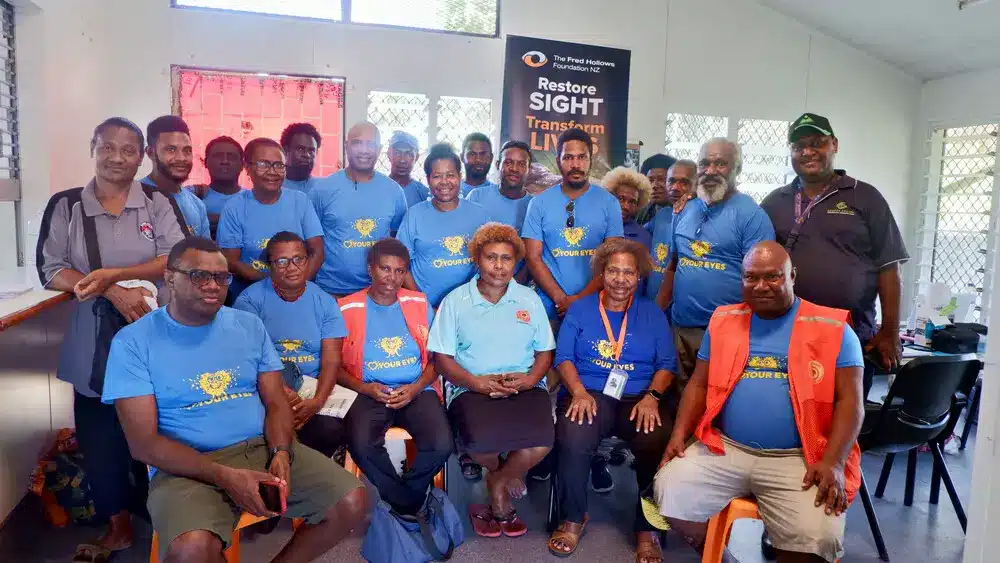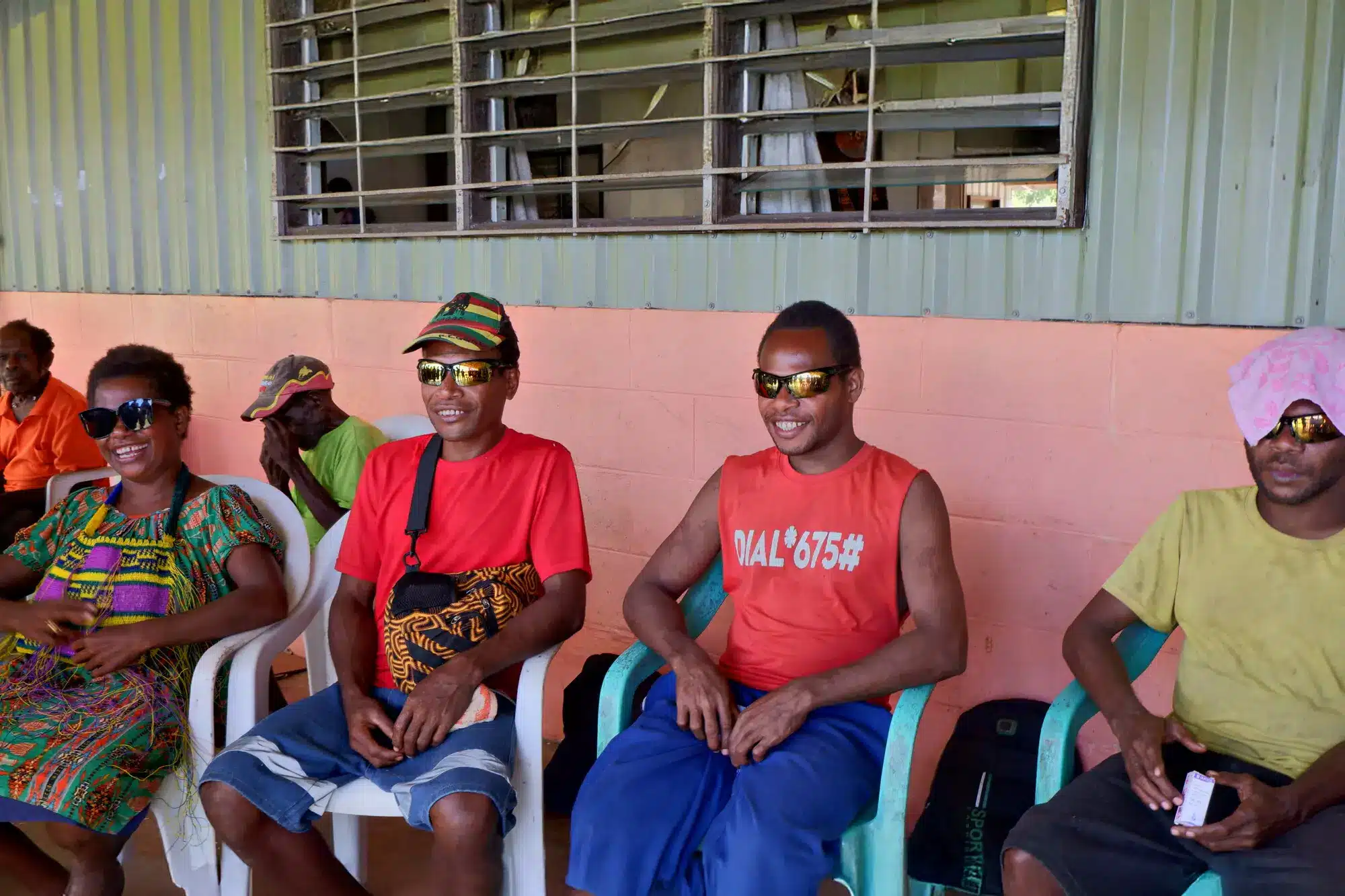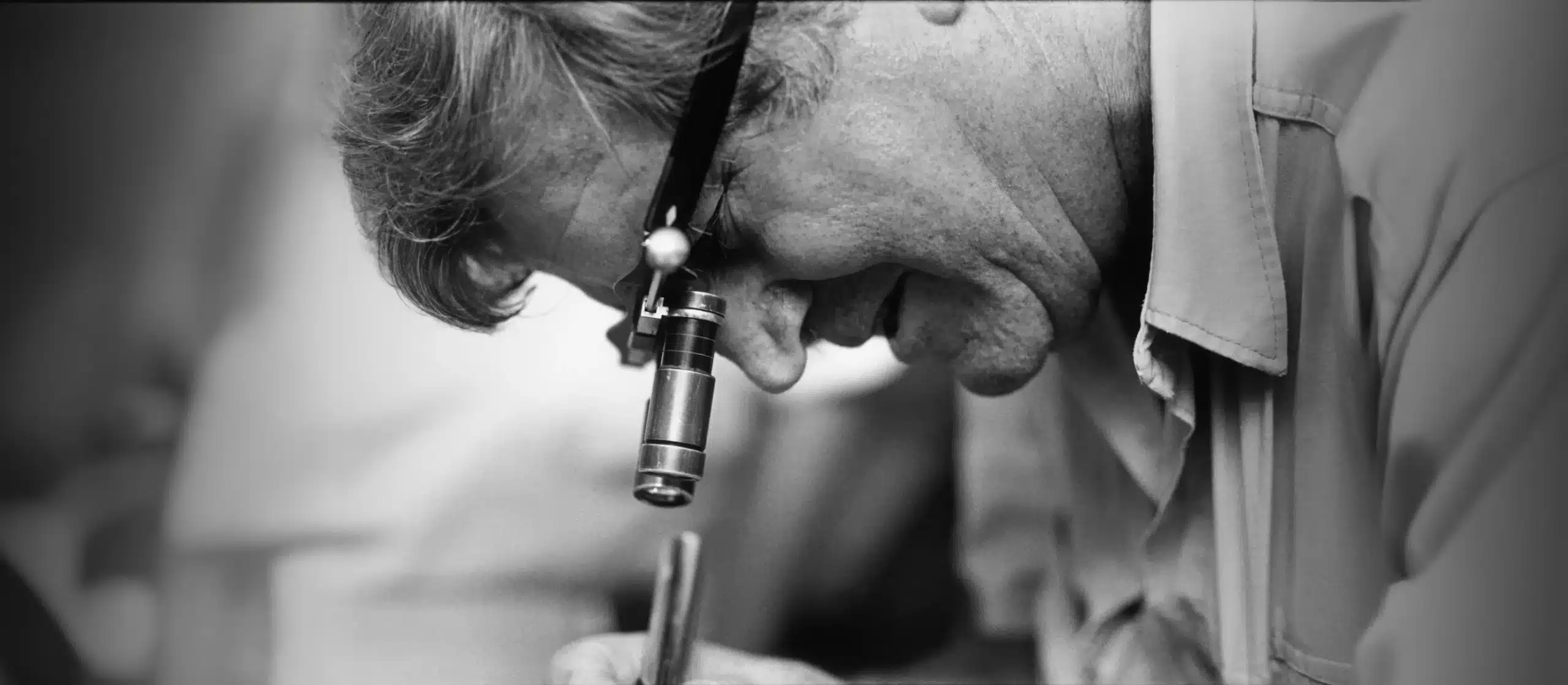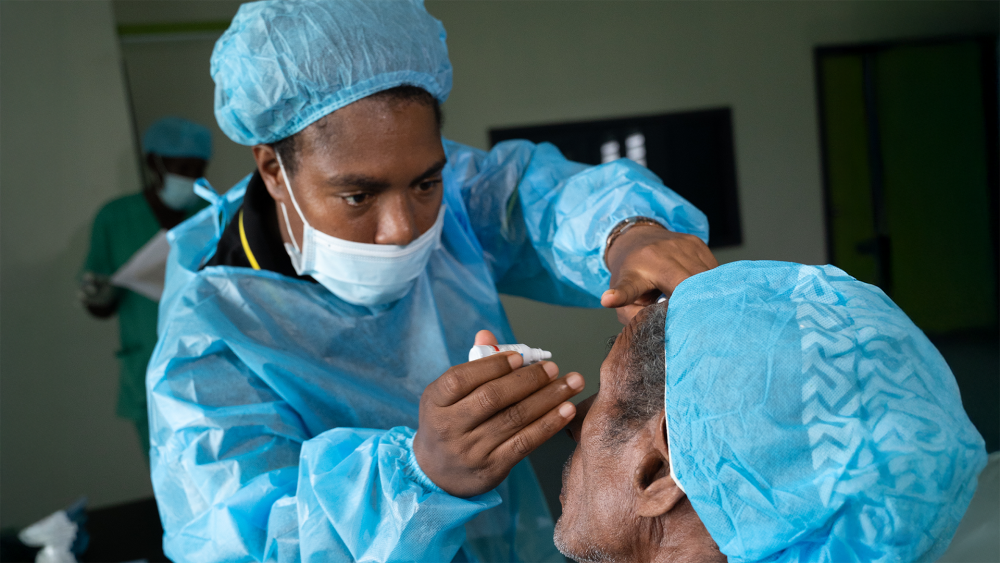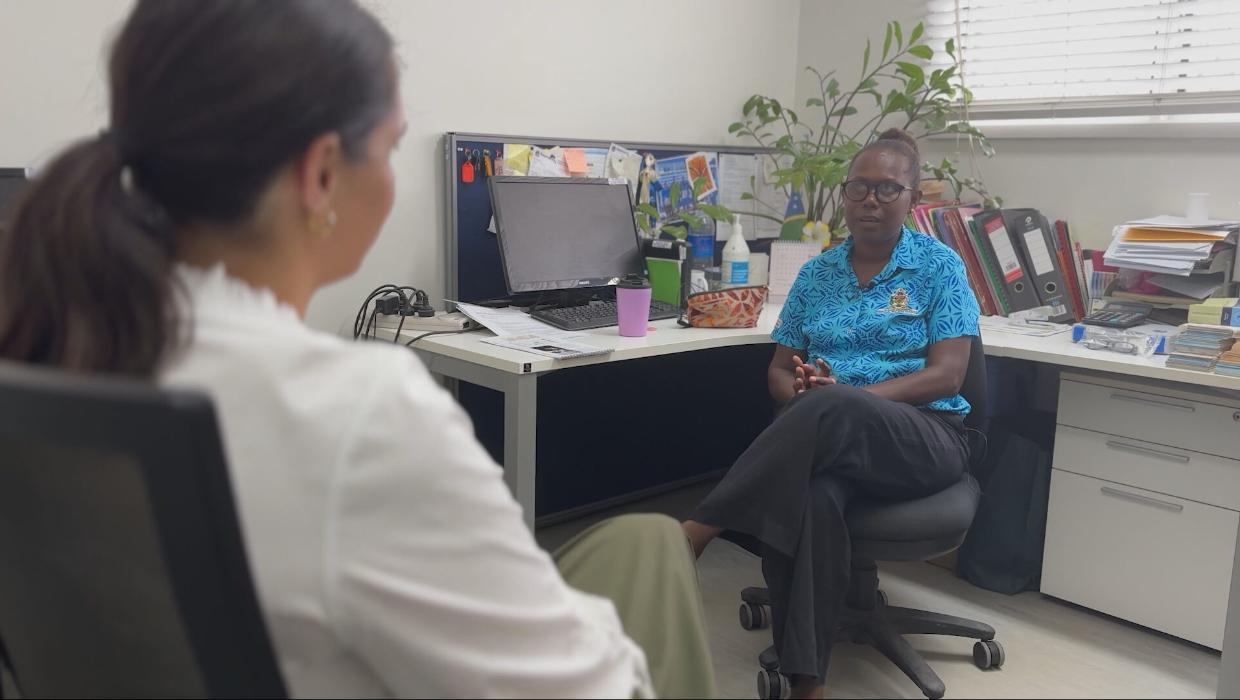In the remote village of Um in New Ireland Province, Papua New Guinea, four adult siblings had been living with blindness caused by cataracts. Rose, 37, and her brothers Bulu, 32, Lipi, 27, and Disem, 20, had all lost their sight in recent years.
Rose, a mother of four, was left to raise her children alone after her husband abandoned her when she became blind. Bulu faced a similar fate, with his wife leaving him and one of their children behind. Lipi and Disem, the youngest, lost their vision while still in school.
Their widowed mother, despite her age, took on the enormous responsibility of caring for her children and grandchildren, but the burden was heavy.
Everything changed when Joe, a local community worker, heard about their situation. Determined to help, Joe made the journey across rivers and rugged bush trails to bring the siblings to Namatanai Rural Hospital, where a week-long outreach was taking place.
This outreach, led by The Fred Hollows Foundation NZ in partnership with the New Ireland Provincial Health Authority (NIPHA) and funded by the Canada Fund for Local Initiatives (CFLI), brought life-changing eye care to hundreds of people living with avoidable blindness and vision impairment. Months of planning, advocacy, and health promotion ensured that even the most marginalised, including women, older people, and those living with disabilities – could access eye care services.
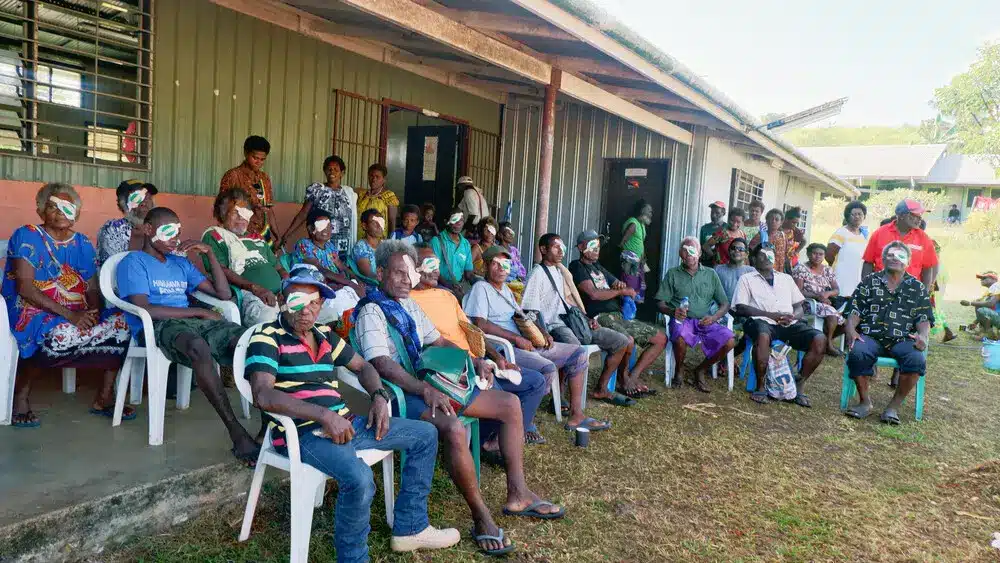
During the outreach, 432 patients received eye health services, including 215 women, 217 men, and several children. 177 eye surgeries were performed, 120 of which were cataract surgeries. Spectacles were also distributed to 192 patients.
For many patients, including Rose and her brothers, this outreach represented their first opportunity in years to receive eye care services. On World Sight Day (10 October), the siblings underwent cataract surgery performed by Dr David Pahau and his team.
The following morning, as their eye patches were removed, local volunteer Joe stood beside them, hopeful for the moment they had all been waiting for. When it was Disem’s turn, Joe gently asked, “Can you see me?” Disem smiled and said, “I can see you!” One by one, Lipi, Bulu, and Rose had their vision restored, their joy evident as they looked at one another and their surroundings.
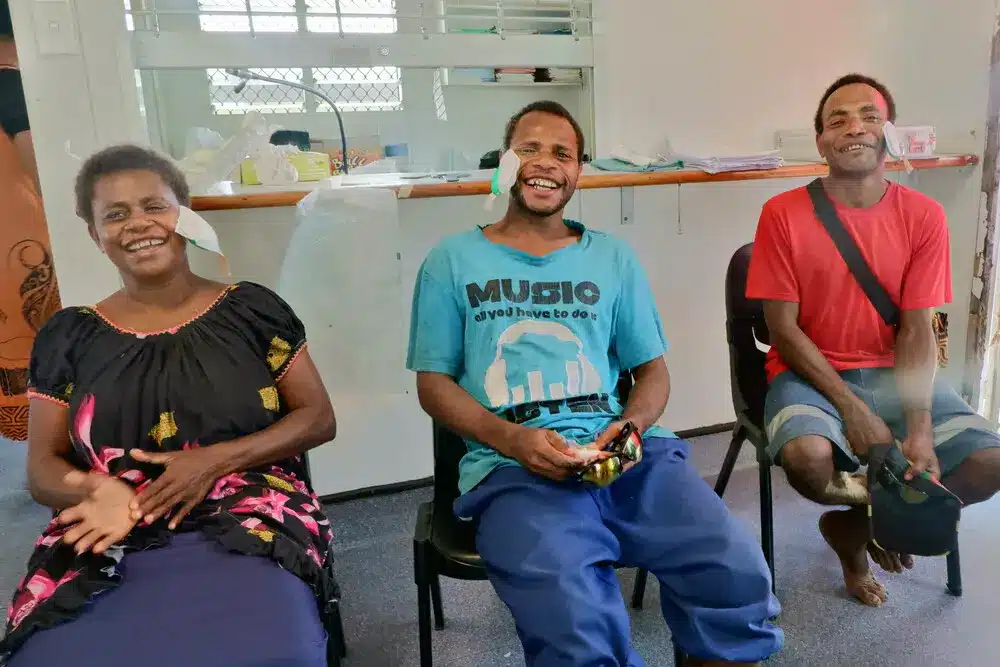
This family’s story is just one example of the transformative impact of the Namatanai outreach. The project also highlighted the importance of gender equity and disability inclusion approaches in health services. Key measures included partnering with local organisations like the New Ireland Council of Women’s Group to increase engagement and trust within communities and actively reach women and persons living with disabilities. Of the patients seen, 118 were identified as having a disability relating to either vision, hearing, mobility, cognition, self-care, or communication.
The team also provided transport and accommodation for those travelling from remote areas.
Outreaches also serve as vital training grounds for Master of Medicine (MMed) students, who gain hands-on experience addressing complex eye conditions under the guidance of experienced ophthalmologists. Initiatives like this not only change lives but also strengthen the local health workforce, ensuring a sustainable future for eye care in PNG.
The outreach’s success was driven by strong partnerships and funding support. CFLI funding, combined with local advocacy and collaboration with organisations like Australian Doctors International, ensured that patients facing significant barriers could access care. Together, we’re closing gaps in eye health care, reaching the most underserved communities, and ensuring equitable care for all.
But the work isn’t done yet. Many patients, including Rose and her siblings, received surgery for only one eye, with plans to complete their treatment during future outreaches. The need for eye care in Papua New Guinea remains immense, but with the ongoing support of donors, local communities, and partners like CFLI, we can continue to restore sight and transform lives.
Your support helps us ensure no one is left behind. Together, we’re creating brighter futures for people living with avoidable blindness and vision impairment. Thank you for making this possible.
